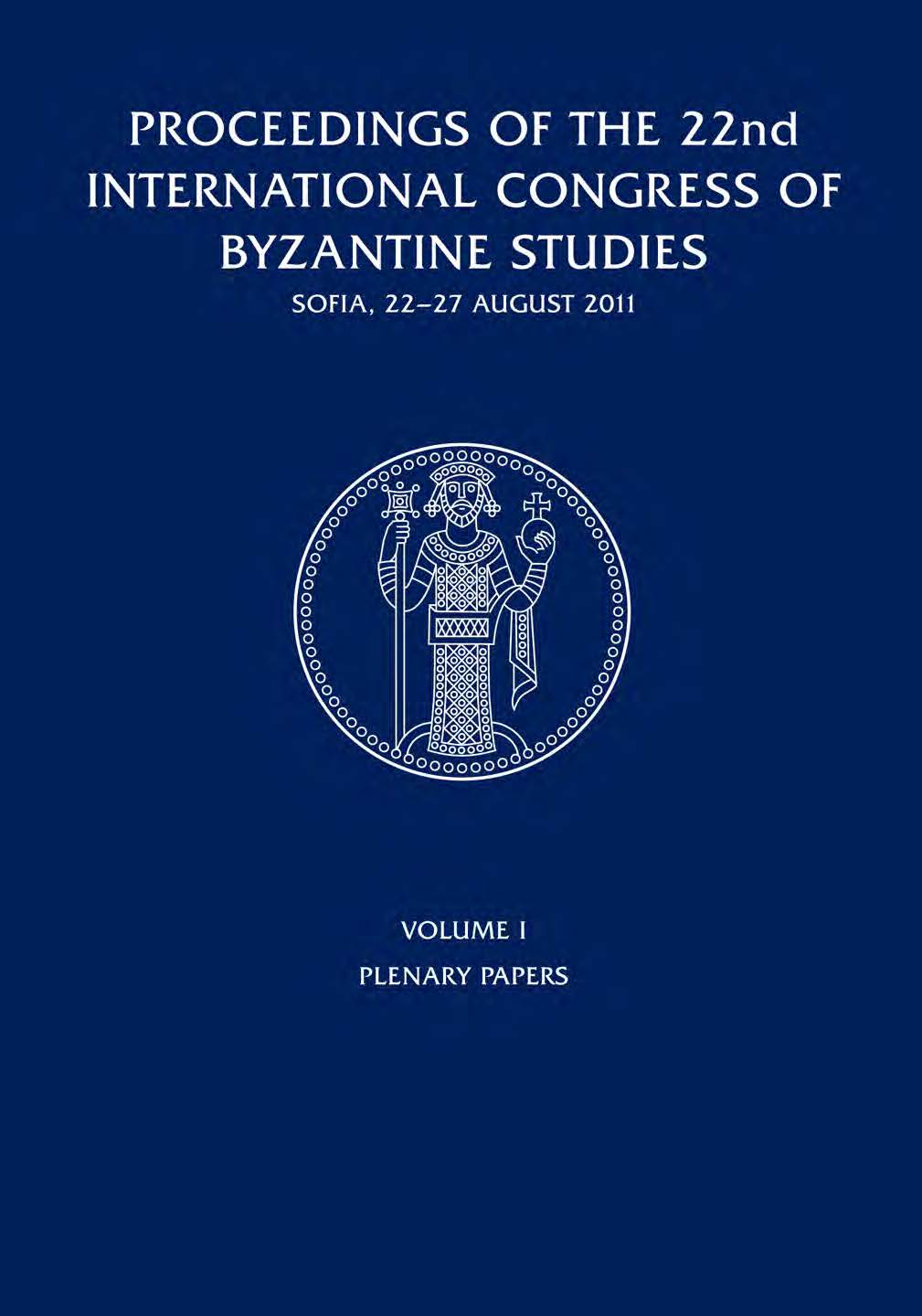
We kindly inform you that, as long as the subject affiliation of our 300.000+ articles is in progress, you might get unsufficient or no results on your third level or second level search. In this case, please broaden your search criteria.

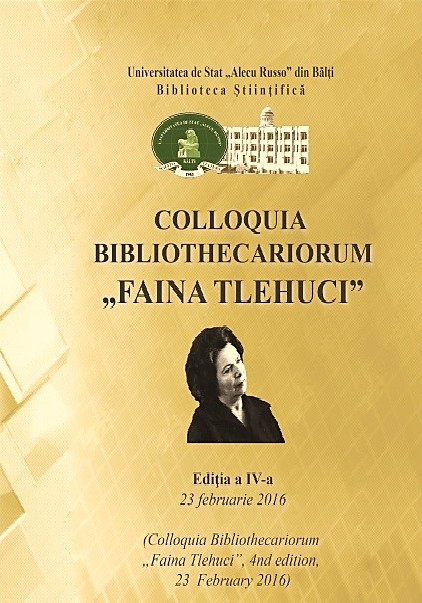
Acest capitol cuprinde articole care vin să valorifice colecţia de carte a Bibliotecii Ştiinţifice USARB.
More...
În capitolul II sunt abordate probleme ce ţin de opurtunităţile şi provocările timpurilor de azi, cu referire la portaluri ştiinţifice globale, reţele sociale, problema protecţiei datelor cu caracter personal.
More...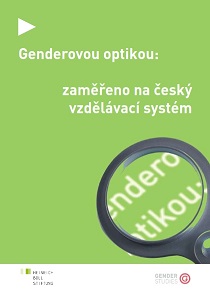
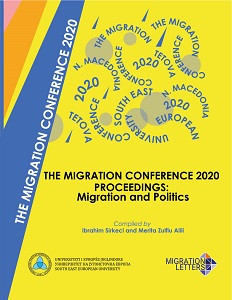
Over the years there have been presentations of many research-works on the so-called “migration and development nexus” with several schools of thought contributing significantly towards the concept as far as the theoretical framework is concerned. In particular, the New Economic Labour of Migration (NELM) stresses on the impact of financial remittances (an aspect of migration) and how it serves as an insurance for most family members. Significantly, there have been several statistical data from the World Bank which highlight on the role of remittance and how it could be a poverty alleviation tool. Whilst these assumptions and theoretical underpinnings seem to argue in favour of how migration could be a contributor to development and poverty reduction, evidence from the grounds seem to suggest quite a worrying situation. Indeed, we cannot discuss development robustly without shedding light on inequality. Thus, the inequality gap between the rich and poor as well as the monumental regional development gap keep widening as the beneficiary of remittances are normally those within the middle and upper class and the places where these live. With reference to Ghana as a case study, the prime focus of this paper discusses how migrants’ remittance is contributing towards inequality in Ghana. To address this issue, this paper is structured into two main parts. The first part discusses statistical data on remittances to Ghana with a review on the theoretical framework on the consequences of migration. The second part delve into the issue of inequality and the role of remittances, discussing options for a better future, with higher levels of social justice.
More...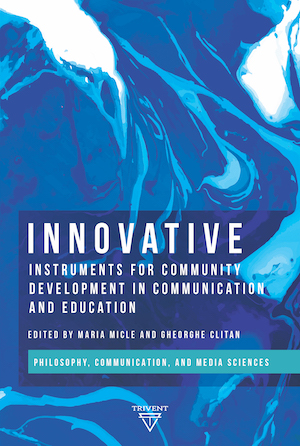
The purpose of this paper is to highlight the contribution of the digital collections to an improved image of the libraries and the impact they have on building the community whose members evaluate the quality of services provided. Examples of innovative digital library activities and services shown hereafter talk about changing mentality and increasing responsibility in institutions, which become more visible in the life of the community they serve. Innovation accomplished through integrative or collaborative solutions, aims at getting user target groups involved in library activities and direct participation and digitization help building communities for educational and research purposes.
More...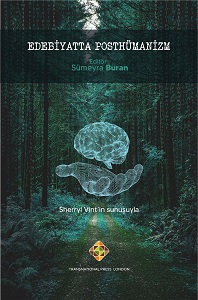
İnsanı, diğer varlıkların üzerinde istisnai bir özne olarak gören Hümanist bakışa tepki olarak doğan posthümanist düşünce, insanın varoluşsal kimliğini sorgular. Edebiyat, sosyoloji, felsefe, siyaset bilimi ve medya çalışmaları gibi birçok disiplinle ilintili olan Posthümanizm, insana dair yeni bir anlayış getirir: insan artık Hümanizm’in parolası olan ‘bütün şeylerin ölçüsü’1 ve efendisi değil, evrenin sıradan ve mütevazı bir üyesidir. Hümanizmanın sorgulanması Friedrich Nietzsche ve Max Stirner gibi felsefecilerle 19. yüzyıla kadar götürülebilir; ancak toplumsal karşılığını bulması, İkinci Dünya Savaşı’ndan sonra özellikle de altmışlı yıllarda, feminizm ve ırkçılık karşıtlığı gibi hareketlerle birlikte postmodernitenin kendini göstermesiyle gerçekleşir. “Bu hareketler Batı demokrasisi, liberal bireycilik ve herkes için sağlandığı iddia edilen özgürlüğe dayalı Soğuk Savaş belagatinin yavanlığına meydan okumuştu” (Braidotti 27). Bunundevamında seksenli yıllardan itibaren ortaya çıkan Hümanizma karşıtı fikirler bileşkesi olan Posthümanizm, insanların Rönesans’tan beri etik anlayışların tek yapıcısı, temsilcisi ve uygulayıcısı olduğu kavramına karşı çıkar. “Aslında Posthümanistler, teknoloji yönelimli geleceğimizde dünyayı ahlaki bir hiyerarşi olarak anlamanın ve insanı da bunun tepesine yerleştirmenin artık bir anlamı olmadığını iddia ederler” (ethics).
More...
Rönesans ve sonrasında Batı düşüncesinde etkin bir felsefi söylem olarak kendine yer edinen Hümanizm, Orta Çağ Hristiyanlığının “Tanrı merkezli bir varlık ve toplum tasavvuru” (Evkuran 39) olan teosentrik dünya görüşünün reddedildiği ve odağını Tanrı’dan insana kaydıran “homosentrik paradigmayı”1(Best ve Keller 180) ifade etmektedir. Nicola Abbagnon’un tanımlamasıyla “hümanizm insanın değerini kabul eden; onu her şeyin ölçütü olarak tanımlayan, insanın doğasını, yetilerinin ölçüsünü (sınırlarını) ya da ilgilerini konu edinen bir felsefedir” (763). Aydınlanma ve Modernite ile birlikte düşünsel zirvesine ulaşan hümanizm, insanları Tanrı’nın vesayetinden kurtararak, seküler değerlerin benimsenmesini, teknolojik egemenliği ve bilimsel akılcılığı teşvik eder. “Batı medeniyetinin seküler ve rasyonel doğrularını bariz bir şekilde yansıtan” (Davies 9) hümanizm, insan-dışı yaşam biçimlerinde olmadığını iddia ettiği temel bir insan özünde ısrar eder. Dolayısıyla, hümanizm ve ona eşlik eden kapitalist düzen Ben / Öteki, Erkek / Kadın, Doğal / Yapay, İnsan / İnsan Olmayan vb. ikili karşıtlar yaratır. Egemen aklın öznesine dayanan bu karşıtlıklar posthümanist söylemde eleştirilmektedir. Çeşitli anlam kalıplarına açık, “birden fazla ve birbiri içine geçmiş” (Ağın 1) anlamlara sahip bir kavram olan posthümanizm, hümanist söylemin iddialarını kabullenmeyi reddederek, hümanizmin hegemonyasına meydan okumayı ve onu dönüştürmeyi amaçlayan bir dizi eleştirel söylemler bütünüdür. Gülnur Güvenç’e göre “posthümanizm, hümanizmin neden olduğu bunalımları açıklayan, düzenleyen veya bunlarla başa çıkmaya yönelik fikirler içeren bir şemsiye terim olarak kabul edilir” (49). İkili karşıtlıkları aşma yönünde, insanı fiziksel ve ontolojik olarak değişime uğratan gelişmiş teknoloji kültürüne posthümanizm de özel bir önem atfetmektedir. Posthümanizmin doğayı ve ekolojiyi de kapsayan tekno-bilimsel felsefesi, artık saf olmayan ve teknolojiyle dönüştürülmüş özneler üzerinde durmaktadır. Andy Miah’ın da belirttiği gibi, “teknolojik değişim posthümanizmin çağdaş temsillerinin bir merkezi haline gelmiştir” (271). Bu atfedilen tekno-kültürde organik ve doğal olmayan “insan/makine, hayvan/organizma/insan, fiziksel/fiziksel-olmayan melez” dönüşümler gibi “posthuman’daki ‘post’ ön eki insanın sınırlarını aşan hem ‘sonra’ hem de ‘öte’ anlamını işaret eder” (Buran 126). Bu bağlamda posthümanizm insanın tarihsel bir eleştirisinden yola çıkarak hümanizm sonrası döneme önceliğini verir ve teknolojinin dönüştürücü etkisini de göz önünde bulundurur (Yeşilyurt 9). Anti-hümanist, feminist ve postmodern düşünürlerin fikirleri ekseninde gelişen posthümanizmin özünde yatan niyet, hümanizmin insanlığa dayattığı totaliter büyük anlatıları parçalayarak, onları çeşitlilik ve akışkanlık fikirleriyle değiştirmektir. Bu özellikleriyle posthümanizm klasik hümanist kavramların eleştirisini yapan, yüksek teknoloji kültürünün dönüştürücügücüne vurgu yapan postmodern bir düşünce olarak da kabul edilebilir.
More...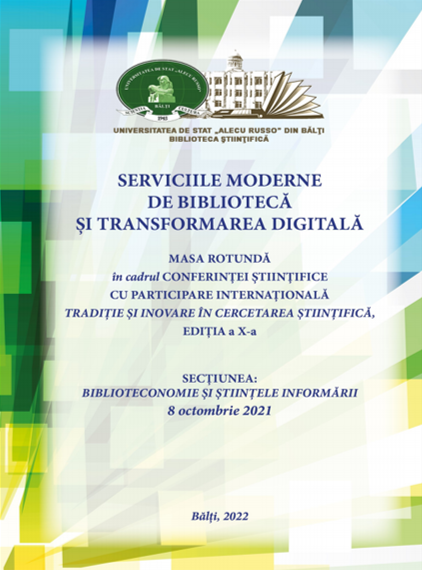
Traditional libraries changed into hybrid libraries, libra ries with important digital collections that fulfill the function of information and knowledge management institutions that carry out their activities in a new context dominated by technologies. Digital transformation is the only way that can ensure the university library's competitiveness and relevance.
More...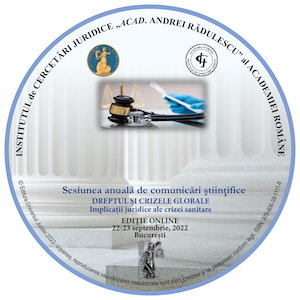
We live in an era of big changes and large-scale crises. Against the background of globalization, digitalization and hyper-pragmatization of existence, civilization is undergoing major transformations and evolutions, under such concepts as: ‘post-truth’, ‘post-culture’, ‘post-religion’, ‘post-humanism’, etc. In a broad sense, the notion of ‘post-culture’ can also define the decline of culture in the conditions of the world’s prevalent orientation towards material values and consumerism, under the pressure of an exacerbated pragmatism. At the same time, we are going through a time of big crises, successive or simultaneous: regional conflicts, increasing tensions among the great powers, the COVID-19 pandemic, the war in Ukraine, new epidemics threatening humanity, growing economic crises, etc. The pandemic drastically limited the access to culture, events, exhibitions, shows, archeological sites, etc. for two years. Wars endanger cultural goods, cause their degradation or destruction, also providing a framework for illicit operations. Economic crises, paroxysmal increases in costs overshadow the field of culture in terms of priority and importance. All these processes and global evolutions have an impact in the Romanian space as well, affecting culture and the national cultural heritage. Culture, deeply linked to education, is the means of building the individual spiritually, intellectually and morally, and the cultural heritage remains the background of a civilization’s spirituality, the framework of a people’s identity values in the concert of European and global diversity. Beyond crises and pandemics, culture and the legal protection of cultural heritage must remain a priority for every state. In the Romanian legal system, access to culture is a fundamental right enshrined in the Constitution.
More...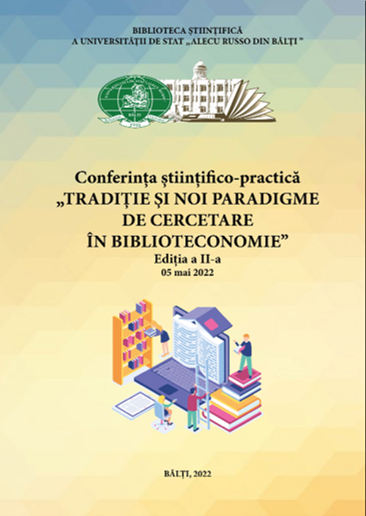
The author argues the need for effective management of training, increasing the skills of library staff. It is important to show flexibility, a differentiated attitude depending on the level of education of the new employees, the time of employment, their acceptance of lifelong learning.
More...
The article presents an incursion into the stages of establishment and development of the Scientific Repository of the National Institute of Economic Research, which were determined by the principles of Open Access and Open Science. It also reveals the content and impact of open access publishing, both on increasing the visibility of authors and institutional scientific results.
More...
Online communications in academic networks are becoming an essential part of everyday scientific practices and opening new opportunities for scientific activities. The academic social network ResearchGate is an advantage for expanding the process of communication between researchers, generating visibility, collaboration and cooperation. The study aimed to present the opportunities of the ResearchGate platform and to provide a clear picture of the way of activity of the members of the ,,Alecu Russo" Bălţi State University, including the Scientific Library, for regis-tration in ResearchGate, which offers amazing possibilities of communication and collaboration with the academic world.
More...
In the article the most important advantages and opportunities of online exhibitions are reflected, their impact is identified in the process of capitalizing on the info-documentary resources of the USARB Scientific Library, the opinions of SL USARB users about the effectiveness of online exhibitions are presented.
More...
Motivation represents one of the most important problems of employees in any organization, including libraries. This paper discusses the results of the survey, conducted in April 2022, regarding motivation of librarians, their views on motivation, the effect of motivation on achievements,the role of motivation, the level of satisfaction of USARB Scientific Library employees and the effort the university managements are making to motivate librarians.
More...
The most representative moments from the life and work of the Romanian playwright and novelist Ion Luca Caragiale are reflected in the communication. Also, the most important works of the writer from the collection of the USARB Scientific Library are used.
More...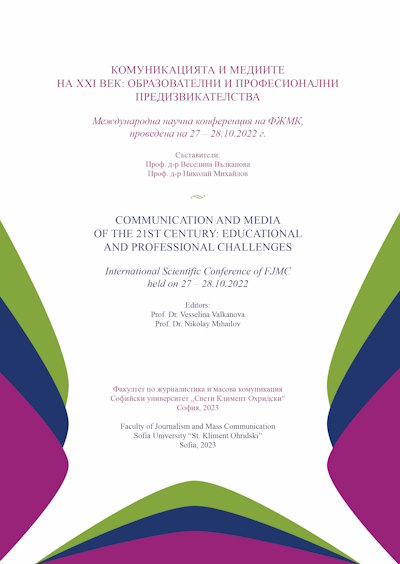
Information society in our days displays digital transformation from both individual and organizational perspectives which explores the challenge of creation and the need for transversal competencies to fit into changing world and state policies within strategic intelligence decisions in upcoming years. The aim of the paper is related to strategic objectives emerging within public discourse in the case of the National Library of Lithuania determining the relation of public communication to strategic guidelines emerging during the process of such communication and collaboration and other important key transversal competencies. Information society in our days displays digital transformation from both individual and organizational perspectives which explores the challenge of creation and the need for transversal competencies to fit into changing world and state policies within strategic intelligence decisions in upcoming years. The aim of the paper is related to strategic objectives emerging within public discourse in the case of the National Library of Lithuania determining the relation of public communication to strategic guidelines emerging during the process of such communication and collaboration and other important key transversal competencies
More...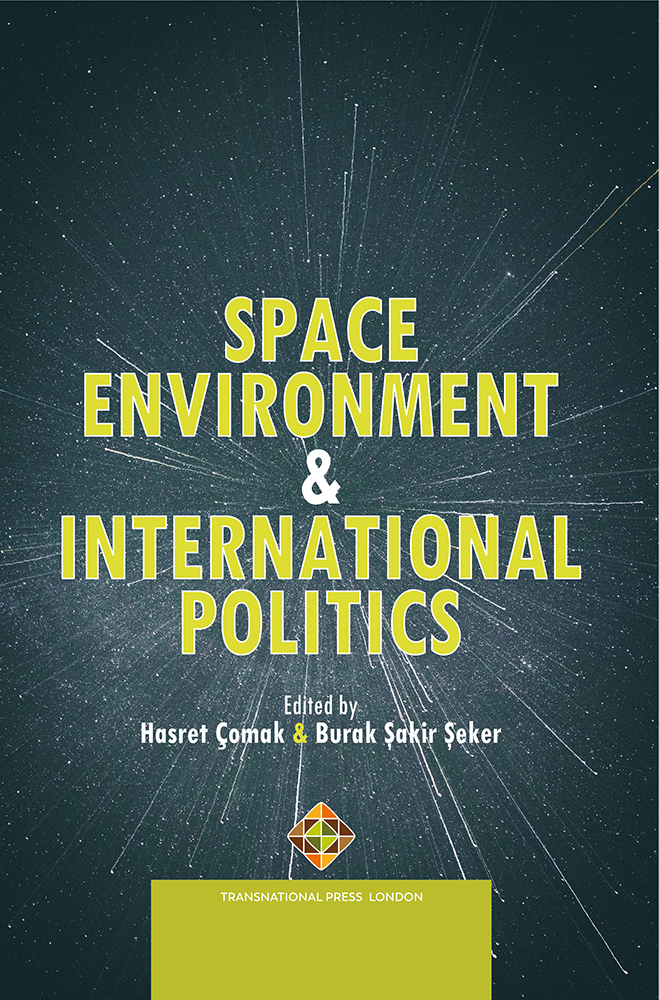
When the space age started during the Cold War, two sides of the Cold War have dominated the space actions for a long time. Space has of course been considered as a means to advance security and decrease security of the adversary regarding the atmosphere of the Cold War. That’s why for a long-time space security have been defined as a state’s ability to place assets to space without being interfered. But today there is much more complex situation in the space when we consider that states, international organizations and even individuals are doing space experiments and launching many objects to space which makes the space more crowded. That’s why today we are in need of wider approaches rather than only military based ones in order to explain the complicated situation of space.
More...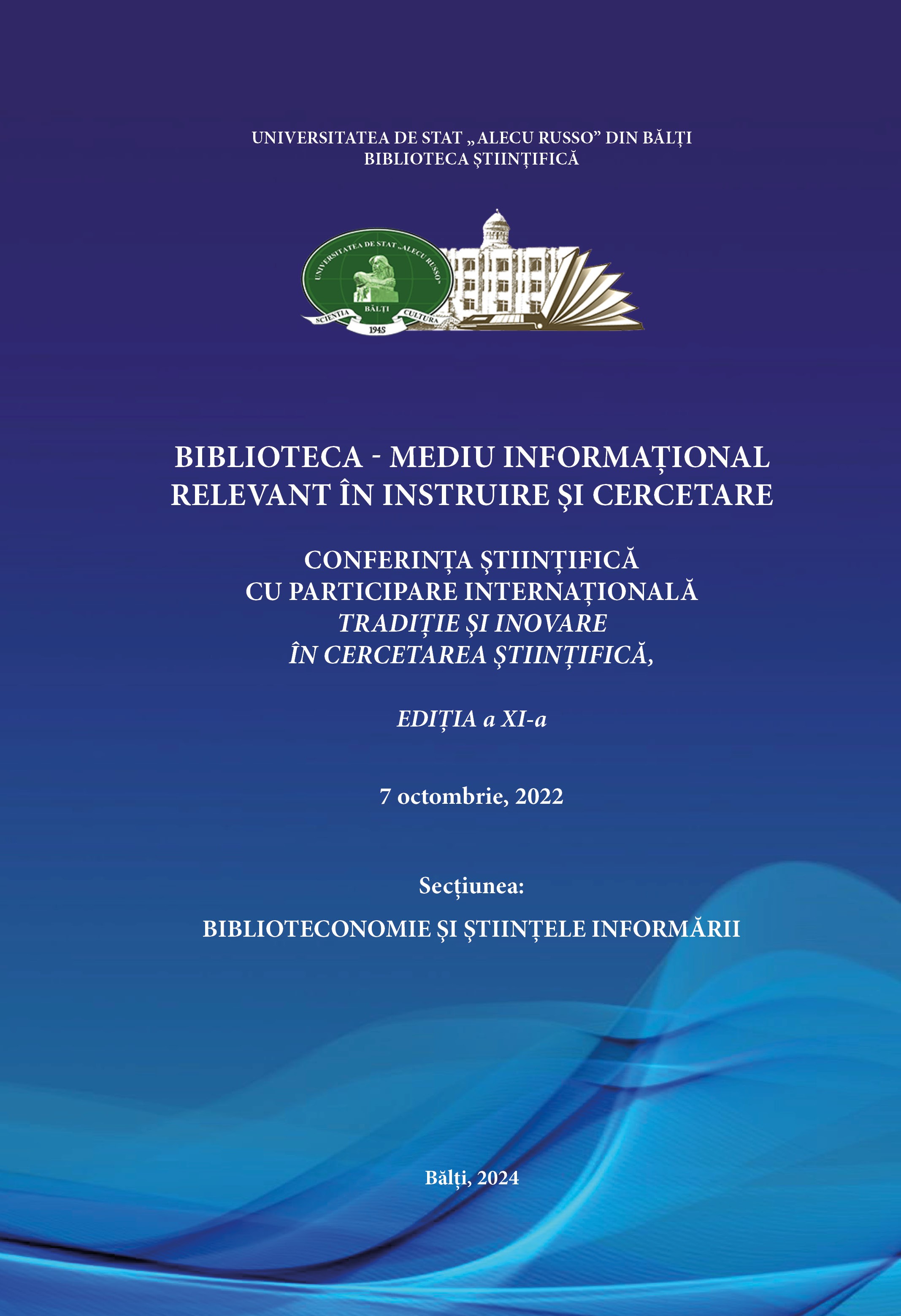
The article reflects the most important forms and methods of document communication used in the USARB Scientific Library. It is argued the application of new forms and methods of valorization and promotion of the Library’s collections at a distance,which offer amazing possibilities to satisfy users’ requests under the most favorable conditions and circumstances.
More...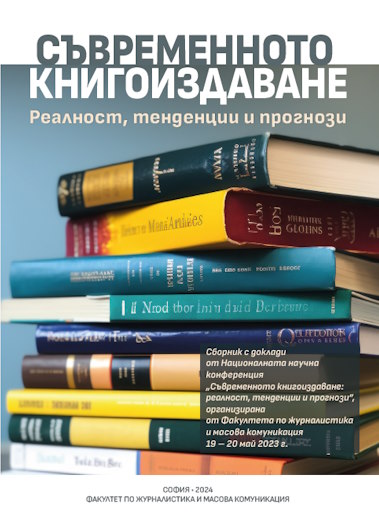
The article substantiates the need to create conditions for depositing, registration, storage, and provision for the use of electronic documents distributed on the Internet. Their belonging to the national documentary heritage has been proven. The difficulties in depositing network resources are shown. The uncertain prospects for the creation of a national electronic archive in the country are outlined.
More...